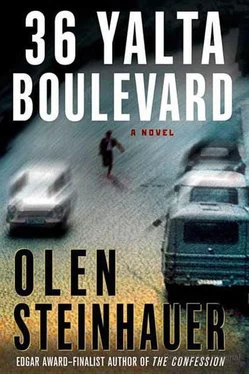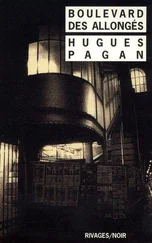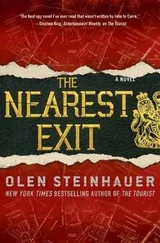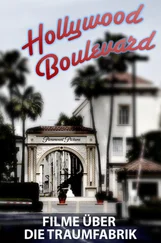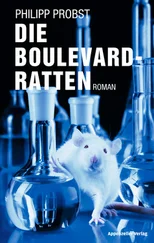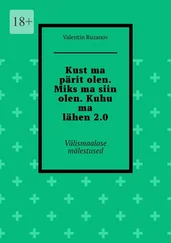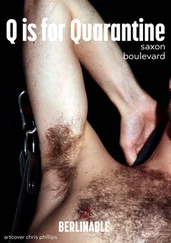Olen Steinhauer - 36 Yalta Boulevard
Здесь есть возможность читать онлайн «Olen Steinhauer - 36 Yalta Boulevard» весь текст электронной книги совершенно бесплатно (целиком полную версию без сокращений). В некоторых случаях можно слушать аудио, скачать через торрент в формате fb2 и присутствует краткое содержание. Жанр: Политический детектив, на английском языке. Описание произведения, (предисловие) а так же отзывы посетителей доступны на портале библиотеки ЛибКат.
- Название:36 Yalta Boulevard
- Автор:
- Жанр:
- Год:неизвестен
- ISBN:нет данных
- Рейтинг книги:3 / 5. Голосов: 1
-
Избранное:Добавить в избранное
- Отзывы:
-
Ваша оценка:
- 60
- 1
- 2
- 3
- 4
- 5
36 Yalta Boulevard: краткое содержание, описание и аннотация
Предлагаем к чтению аннотацию, описание, краткое содержание или предисловие (зависит от того, что написал сам автор книги «36 Yalta Boulevard»). Если вы не нашли необходимую информацию о книге — напишите в комментариях, мы постараемся отыскать её.
36 Yalta Boulevard — читать онлайн бесплатно полную книгу (весь текст) целиком
Ниже представлен текст книги, разбитый по страницам. Система сохранения места последней прочитанной страницы, позволяет с удобством читать онлайн бесплатно книгу «36 Yalta Boulevard», без необходимости каждый раз заново искать на чём Вы остановились. Поставьте закладку, и сможете в любой момент перейти на страницу, на которой закончили чтение.
Интервал:
Закладка:
Olen Steinhauer
36 Yalta Boulevard
PRELUDE
It was the smell that would stay with him when he remembered this moment: grass-yes, and flowers. Strong, musty. Then a glut of syllables. Rough tones. Eyes still closed, he tried to manage the sounds into words, then sentences.
“ Stehen Sie auf! ”
Guttural, crisp. Behind the voice, birds twittered.
And in his head something thumped, but the pain was manageable; he could hold it in his hand and squeeze it into submission.
“ Sie sind Nicht tot, oder? Nein.”
Pressure-fingers gripped his shoulder, then shook. First hesitantly, then with confidence.
“ Kommen Sie.”
He waited, because… he didn’t know why. He only knew he should wait, a few seconds, before opening his eyes and proving that he was, in fact, awake.
Now.
A bright sun and, as he suspected, grass. His cheek was buried in freshly trimmed blades, arms spread out. Hovering above, a heavyset man in a strange uniform smiled and scratched his mustache.
“ Da sind Sie ja. Stehen Sie jetzt auf.”
German, Austrian accent. There you are. Get up now.
The policeman helped him up, straightened his jacket, and brushed him off with quick, economical slaps.
“ Bitte schon, mein Herr. 1st alles in Ordnung? ”
He nodded. “ Alles in Ordnung.”
He could speak it, but the language wasn’t his.
They were standing in a grassy semicircle bordered by geometric bushes that caged flowers. Roses or carnations-he couldn’t quite focus yet. Beyond the policeman were trees, a young couple walking hand in hand, students lying in the grass reading, and a white-bearded old man leaning against a tree, staring at them.
“Drunk?”
He shook his head. “ Nein.”
“Name?”
He opened his mouth. The policeman waited, blinking.
“Documents? You have documents, ja?”
He patted his pockets and glanced behind himself: a small Greek temple with a statue on a plinth-a young, naked man looking to the side. In his breast pocket he found a typed card with a name.
The policeman squinted at it. “Bertrand Richter?”
“ Ja.”
“This is a library card. Anything else?”
He shrugged. “Sorry. At home.”
“What are you doing here, Bertrand?”
He had no idea. “I was out late last night. I guess I fell asleep.”
The policeman smiled again. “You have an interesting accent, Bertrand.”
“I travel a lot.”
“Doing what?”
“I buy and sell Persian rugs.”
“I see.”
The policeman considered him a moment, glanced into the sun, and returned the card. “Be a little more responsible in the future, Bertrand.”
“Of course. I apologize.”
The policeman smoothed his mustache with thick fingers. “Don’t apologize to me. It’s Vienna that doesn’t want drunks littering its parks. Need help getting home?”
“No. No, thank you.”
He did not sell Persian rugs, and his name was not Bertrand. Although he could not remember what his name was, he was sure that this was not it. He walked south through the park- der Volksgarten, he remembered, Garden of the People-toward the spires of the Hofburg Imperial Palace rising above the treetops. The vast square in front of its arc was speckled with tourists and businessmen drifting past the statue of a man on a rising horse-this, too, he knew: the monument to Archduke Charles.
He knew Vienna, its geography and its histories-that much was apparent. But this was not his home-walking its streets gave him a vague sense of agoraphobia, and the German he spoke was strange, from somewhere else.
Just past the archduke he turned left, entering a tunnel that burrowed through the palace, where statues of long-dead royalty looked down from crevices, making him think of old wars on horseback.
And for a reason he could not place, those statues filled him with disgust.
He emerged on another square and sat in the shadow of a white church beneath a high clock tower, then touched the throbbing sore spot on the back of his head. Underneath, the hair was stiff from dry blood. In his jacket pocket he found a slip of white paper, folded in half, with barely legible handwriting: Dijana Frankovi c, followed by a telephone number.
He stared for a while, but could not remember her.
There was a telephone booth on the other side of the square, and he briefly considered it. But he felt that he should not call the number, and he was clearheaded enough to follow his muted instincts.
Between the church and the gloomy Raiffeisenbank, he followed Kohlmarkt down to Graben, a pedestrian shopping street choked with outdoor cafe tables where all of Vienna, it seemed, stared at him. He entered a cafe at random and found a bathroom with three sinks. Beside him, a businessman in a clean suit checked his straight, white teeth in a rusting mirror, then left.
He splashed water on himself and stared at his wet face. Round but thin, with three moles on his left cheek. He tried to guess his own age-somewhere in his forties, perhaps. He felt much older.
He removed his jacket, then rolled up his sleeves. That was when he noticed the blood smeared down his right forearm; it wasn’t his blood. He washed it off.
It seemed that at this point he should panic, but he took in each new piece of information as if it were part of a checklist on a clipboard. Don’t know my name. Check. Woman’s phone number. Check. Don’t know age. Check. Someone else’s blood on me. Check.
He went through his pants, and in a back pocket found another slip of paper-small, one inch square, a dry-cleaning ticket:
321
HOTEL KAISERIN
ELISABETH
A phone booth directory told him that the Hotel Kaiserin Elisabeth was not far away-down Graben, then a right at the high, corroded Gothic of St. Stephen’s Cathedral. He paused at the Huber Tricot clothing store, but by now the path was coming back to him. Left, just a few doors down, past cigarette- and gold-sellers’ storefronts. Weihburg-Gasse 3. The Kaiserin Elisabeth was plain-faced and white, the glass awning held together by an iron frame. A thin bellboy in green stood before the wooden doors, hands clasped behind his back. “ Gru? Gott,” said the bellboy.
He nodded a reply, then went inside.
The narrow entry was lined in marble-to the left, an alcove with elevator and stairs; to the right, a reception desk, where a woman read a book. She smiled at him as he passed.
His instincts kept him shuffling ahead, beyond the desk. Which was strange. A reasonable course of action would be to approach the desk clerk and ask the simple questions: Do you recognize me? and What is my name? But, as with the phone number still in his pocket, he could not bring himself to do what was reasonable.
Through double doors he found an empty sitting room, where a regal patterned carpet stretched beneath a domed glass ceiling. In a portrait above the cold fireplace, Queen Elisabeth looked as if nothing could amuse her. He settled on one of the padded chairs arranged around polished coffee tables and flipped absently through a copy of the day’s Kurier.
He could wait here for hours-but for what? Perhaps nothing. He read that a German writer named Pohl had just died; the Americans had begun broadcasting on Radio Free Asia; and in the back, a concerned reader had written in to protest U.S. President Lyndon Johnson’s escalation of war in Vietnam.
But none of these could compare to his mystery. He folded the newspaper as the double doors opened, and the bellboy walked up to him. His loose blond hair hung low over his bright blue eyes, and his smile seemed completely insincere. “Can I help you, sir?”
“I just wanted to get my key.”
Читать дальшеИнтервал:
Закладка:
Похожие книги на «36 Yalta Boulevard»
Представляем Вашему вниманию похожие книги на «36 Yalta Boulevard» списком для выбора. Мы отобрали схожую по названию и смыслу литературу в надежде предоставить читателям больше вариантов отыскать новые, интересные, ещё непрочитанные произведения.
Обсуждение, отзывы о книге «36 Yalta Boulevard» и просто собственные мнения читателей. Оставьте ваши комментарии, напишите, что Вы думаете о произведении, его смысле или главных героях. Укажите что конкретно понравилось, а что нет, и почему Вы так считаете.
